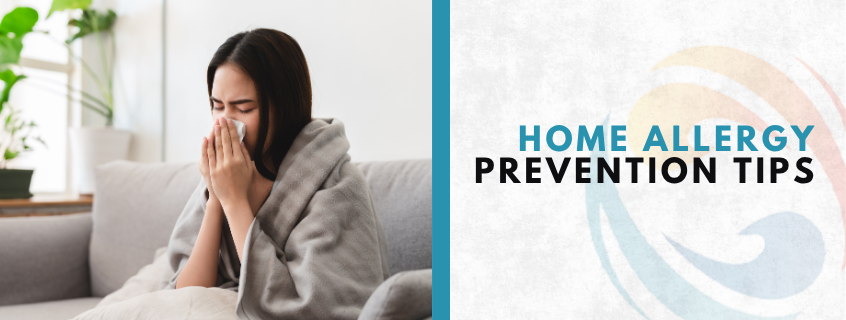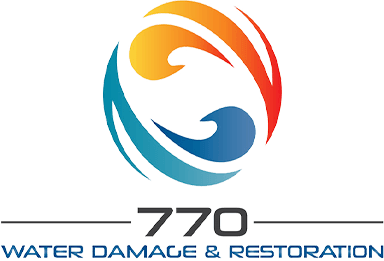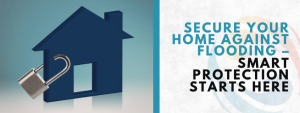
When you come home, you want it to feel like a breath of fresh air—literally. But sometimes, the air inside your house might not be as clean as you think. Dust, pet dander, mold, pollen, and even moisture can turn your living space into a sneezing zone. If you or someone in your family is always sniffling or dealing with itchy eyes, the problem might not be outside. It could be your own home.
That’s why learning and using smart home allergy prevention tips is so important. These practical ideas will not only help you feel better, but they also protect your home from hidden dangers that could be hurting your indoor air quality every day.
Let’s take a closer look at 9 powerful home allergy prevention tips you can start today to keep your indoor air fresh, breathable, and safe for your whole family.
Tip 1: Clean Your Air Filters Like Clockwork
One of the easiest ways to improve the air in your home is to regularly clean or replace your HVAC air filters. These filters catch all kinds of airborne particles like dust, pollen, and even mold spores. But if you forget to clean them, they can get clogged and push dirty air back into your house.
Why It Matters:
- A dirty filter becomes less effective at catching allergens.
- Your HVAC system works harder, wasting energy and spreading allergens.
- Mold can build up in moist filters and spread spores into the air.
Helpful Hints:
- Check your filter every month, especially during allergy seasons.
- Replace it every 2 to 3 months, or more often if you have pets or allergies.
- Choose a HEPA-grade filter for the best allergen control.
Using smart home allergy prevention tips like this one helps cut off allergens at the source and improves your home’s airflow naturally.
Tip 2: Dehumidify Damp Areas Before Mold Takes Over
Mold doesn’t just smell bad—it can be a serious allergy trigger. It loves to grow in dark, wet spaces like basements, bathrooms, under sinks, and even inside your walls. That’s why controlling moisture is one of the most effective home allergy prevention tips you can follow.
Dehumidifying Checklist:
- Use a dehumidifier in basements or laundry areas.
- Keep indoor humidity levels between 30% and 50%.
- Fix leaky pipes and improve bathroom ventilation.
- Always run the bathroom fan when you shower or bathe.
If mold damage has already occurred—especially from water leaks—you may need expert help. This is where water damage restoration services come in handy, as they remove the source of moisture and prevent future mold growth from sneaking back in.
Tip 3: Say Goodbye to Wall-to-Wall Carpeting
Carpets may feel cozy, but they can also trap dust mites, pet hair, and pollen, especially if you don’t vacuum regularly. For allergy sufferers, carpeted floors can be one of the biggest hidden hazards in the house.
Smarter Flooring Options:
- Wood
- Vinyl
- Tile
- Laminate
These surfaces don’t trap allergens and are easier to keep clean. If you love the feel of a soft rug, go for a washable area rug instead. Following home allergy prevention tips, like switching flooring, can greatly reduce your exposure to airborne triggers.
Tip 4: Keep Your Pets, But Not Their Allergens
We all love our furry friends—but let’s be honest: they shed hair, dander, and even bring in pollen from outside. Pet allergens are light and sticky, meaning they can hang around in your home long after the shedding ends.
Simple Strategies for Pet Owners:
- Bathe and brush your pets regularly (outdoors if possible).
- Keep pets out of bedrooms and off fabric furniture.
- Use a HEPA vacuum weekly to trap allergens in carpets and upholstery.
- Wash pet bedding and toys every week.
With proper cleaning routines and home allergy prevention tips, you can enjoy your pets without suffering from sniffles and sneezes every day.
Tip 5: Ditch the Clutter and Dust More Often
The more stuff you have lying around, the more surfaces dust can settle on. Clutter creates hiding spots for allergens to build up, especially in bedrooms and living areas.
Decluttering Ideas That Help:
- Limit trinkets, extra pillows, and fuzzy throws.
- Store toys, books, and items in bins or cabinets.
- Use blinds instead of heavy curtains for easier cleaning.
When you combine these cleaning habits with other home allergy prevention tips, you make your home not just tidier but healthier too.
Tip 6: Wash Bedding in Hot Water Weekly
Did you know that dust mites love to live in your bedding? They feed on dead skin cells and thrive in warm, humid environments. The result? You wake up stuffy or with itchy eyes.
Laundry Tips That Work:
- Wash sheets, pillowcases, and blankets every 7 days.
- Use water at least 130°F (54°C) to kill dust mites.
- Choose allergen-proof covers for pillows and mattresses.
- Dry everything completely before using.
Washing your bedding is one of the most effective home allergy prevention tips for better sleep and better breathing.
Tip 7: Let Fresh Air In, But Block Allergens Out
Fresh air is good for you—unless it’s packed with pollen or smog. That’s why you need to be smart about when and how you open your windows.
Do’s and Don’ts:
- Do open windows after it rains, when pollen is low.
- Don’t open windows early in the morning or on windy days.
- Install screens to keep outdoor allergens from blowing in.
- Run an air purifier with a HEPA filter in key rooms.
One of the smartest home allergy prevention tips is knowing when to open up your space—and when to seal it tight.
Tip 8: Monitor for Water Damage—It’s Sneaky and Dangerous
Sometimes, water leaks are obvious. But other times, they can hide behind walls or under floors, slowly spreading mold and mildew without a trace. This can seriously affect your indoor air quality and your family’s health.
Common Signs of Hidden Water Damage:
- Musty smell, especially in bathrooms or basements
- Peeling paint or bubbling wallpaper
- Stains on ceilings or walls
- Creaky or soft flooring
Don’t ignore these clues. Acting fast can prevent costly repairs later. For homes in coastal areas like Playa Del Rey, moisture can sneak in from salty air and humidity. If you’re concerned, it’s worth calling for Water Damage Restoration Playa Del Rey services to inspect and restore your space safely.
Using moisture control and cleaning routines together is one of the most overlooked yet powerful home allergy prevention tips.
Tip 9: Choose Natural Cleaning Products for Safer Air
Many store-bought cleaners are filled with chemicals that release strong fumes. These fumes can irritate your lungs and trigger allergies, even if they’re labeled as “clean.” Natural, fragrance-free cleaners are a better option for your home and your health.
Best Natural Cleaning Options:
| Cleaner Type | Safe Ingredient | Where to Use |
| All-purpose | White vinegar + water | Counters, mirrors, glass |
| Scrub cleaner | Baking soda + water | Sinks, tubs, tile grout |
| Air freshener | Lemon + water + herbs | Living room, kitchen |
| Disinfectant | Hydrogen peroxide 3% | Bathrooms, door handles |
Switching your products is one of the simplest home allergy prevention tips to breathe easier while you clean.
Final Thoughts: Make These Allergy Prevention Habits Stick
Allergies can make even the best home feel uncomfortable. But with these home allergy prevention tips, you’re now ready to tackle the biggest triggers—from dust and mold to pet dander and poor airflow. These tips aren’t just for allergy season—they’re everyday habits that protect your space and support better health for everyone inside.And remember, sometimes professional help is your best option—especially if your home has water damage, mold, or poor airflow. In those cases, a full inspection from experts like this trusted restoration team can make a huge difference in the long run.
Frequently Asked Questions: Home Allergy Prevention Made Simple
How can I tell if my home air is causing my allergies?
If you notice sneezing, itchy eyes, or congestion that improves when you leave home, indoor allergens may be the cause. Look for signs like musty smells, visible dust, or water damage as indicators.
What’s the best way to reduce allergens without major renovations?
Simple steps like using HEPA filters, dehumidifiers, and washing bedding weekly can make a big difference. Decluttering and switching to natural cleaners also help reduce airborne triggers.
Do I need professional help if I see mold or water damage?
Yes, professional services ensure safe and thorough cleanup, especially in hidden or recurring problem areas. DIY methods often miss deeper damage that can keep affecting air quality.
Can pets make allergies worse even if they seem clean?
Yes, pets carry dander and outdoor allergens that stay in the air and on fabrics. Regular grooming and keeping pets out of bedrooms can help reduce symptoms.
How often should I clean or replace my air filters?
Check your filters monthly and replace them every 2 to 3 months, or more often with pets or allergies. This helps maintain clean airflow and reduces indoor allergen buildup.



